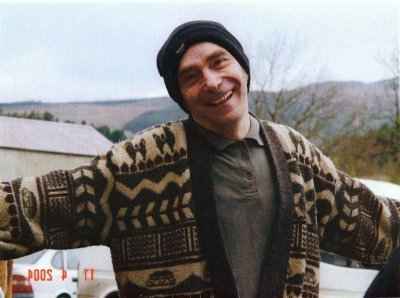John Vidal the Environment Editor of the Guardian writes
?The acquisition of farmland from the worlds poor by rich countries and international corporations is accelerating at an alarming rate, with an area half the size of Europe?s farmland targeted in the last six months, reports from UN officials and agriculture experts say.?
In the Guardian article entitled ?Fears for the world?s poor countries as the rich grab land to grow food? we are told
?Outsourcing food production will ensure food security for investing countries but would leave behind a trail of hunger, starvation and food scarcities for local populations. The environmental tab of highly intensive farming ? devastated soils, dry aquifer, and ruined ecology from chemical infestation ? will be left for the host country to pick up.?
Here we see more of the same by the forces of global capitalism hell bent on ensuring that they maintain their highest levels of return on capital employed. They have used up most all the capital resources that exist in their own countries having devastated the soil and water and now they are moving to countries where they can charge for their chemical quick fix that creates deserts.
As an accountant one of the first principles of sound business management one learns is that you do not erode your capital base. It is out of this base that you earn revenue to sustain your business for the long term future. If you find that you are using capital this is indicative of mismanagement. Not so it appears if the capital base is the soil on which we are all dependant to sustain life.
Return on capital employed is the driving force of corporate life. The higher the better. Chief Executive Officers of large corporations will no longer be Chief Executive Officers if return on capital employed is not increasing and damn the consequences. This increased return is reflected in rising share prices that are the be all and end all of the God called market forces.
Who pays the consequences? In the short term the poor and in the long term every one of us. Why does this happen. In simplistic terms it is because we in the Western world are not prepared to pay the cost of producing food in a way that is sustainable. We have become so used to cheap price food that we no longer accept prices that would reflect the full cost of production.
The result is that food is produced as cheaply as possible and as intensively as possible. When the resources of the land have been burned away through intensive chemical use the corporations move on to buy up other land resources by which they can maintain their one measure of success ? return on capital employed. No one stops to ask what happens when the capital base is fully eroded.
As a storyteller and writer on Irish mythology this fixation on ever increased return on capital employed would be recognised as a poisonous story. In a fairy story this market force would be represented by a poison apple. We are now a global village and this poison is set to come back to us in the West. We have allowed undemocratic forces to use resources that belong to us all in a self interested way.
Due to self interest we have refused to be stewards of the land in the interest of future generations. Sustainable food costs. It costs energy in the form of money. If that energy is not expended in the form of money it costs in other ways. The present system of ever cheaper food production costs lives. The price paid is that of hunger and starvation but not for you or me ? or at least not yet. It costs the lives of the most vulnerable in our global village.
Still the good news is that the FTSE index will in the short term have risen in the knowledge that the God of the market place will be for a little while appeased. At least until the land runs out.
Tony Cuckson
Quotes taken from the Guardian Friday 3 July 2009
Grimsby مترجم فيلم كامل عبر الإنترنت English 2016
-
فيلم كامل على الانترنت Grimsby 2016 Grimsby (2016) المنتقمون نهاية
اللعبةمشاهدة فيلم كامل Grimsby Grimsby ⭐⭐⭐⭐⭐فيلم كامل باللغة العربية 2016
عبر الإنترنتف...
5 years ago




No comments:
Post a Comment